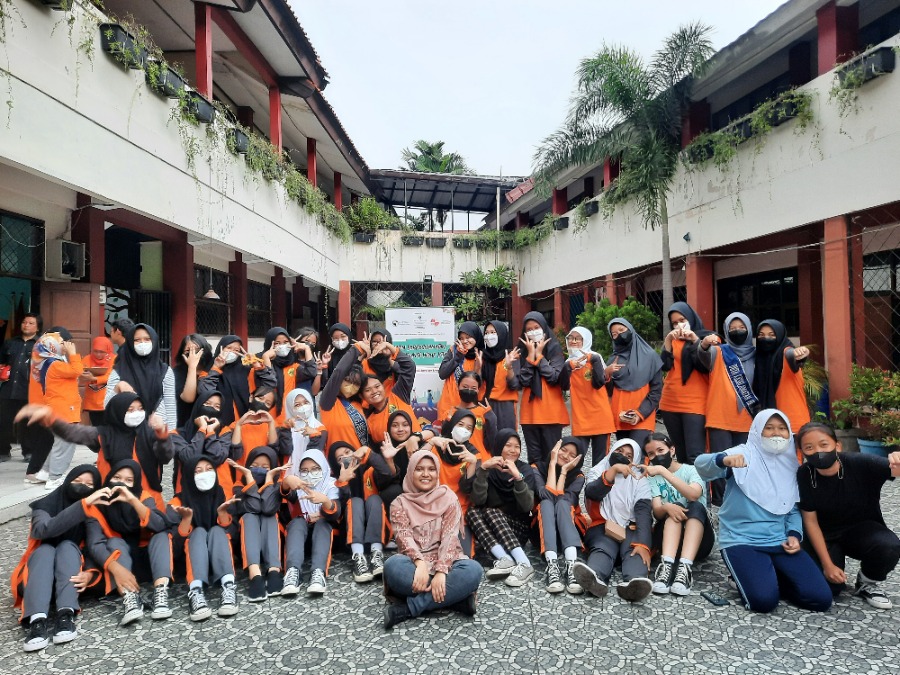Roadside surveys conducted in teams, role played appeals to decision-makers, and a social media challenge, were all part of an innovative “Safer Roads Save our Lives” Workshop held last Saturday in Indonesia coinciding with International Day of Youth.
Nearly 60 students and teachers of Junior High School 22 Bandung City in West Java, 7 project facilitators and representatives from the Department of Transport (DoT) and 3M Indonesia gathered for the event which aimed to educate and empower youth voices for road safety supported by Star Rating for Schools (SR4S).
The workshop was led by Global Youth Coalition for Road Safety Youth Leadership Board Member Estiara Ellizar and is part of a project called “School Safety Zones Assessment through Youth Perception and iRAP Star Rating for Schools”.
The project is focussing on the journey of the students to and from the high school and aims to provide a safer route by proposing safer design recommendations informed by the iRAP SR4S Methodology. Based on their experience and observations, the students will help identify the potential risks they face around the school.
Saturday’s workshop aimed to educate and raise awareness of the students and teachers about road safety and safe school zones, how student behaviour can help address local transport and mobility issues, and how social media can help promote road safety.
The agenda included:
- Presentations from Estiara as Project Team Leader, the school and DoT; an Introduction to Road Safety presentation by Windu Mulyana, Road Safety Education Specialist and former Save the Children Programme Officer; and lessons in How to Conduct Effective Social Media Campaigns led by Maolin Macatangay, Communications Manager from Youth for Road Safety (YOURS).
- Students were divided into four groups to conduct a roadside field survey, identifying road safety issues through traffic counting and analysis of road condition and the presence of signage and sidewalks. The survey generated data on youth perception and SR4S attributes.
- On return to the school, students collaborated within their teams to list issues and potential solutions.
- Results were presented in a role-play to facilitators acting as the Mayor and City’s Secretary by the students acting as a consulting firm advising on road safety improvements.
- The day culminated with a Social Media Challenge with students challenged to create a road safety campaign sharing their workshop experiences.
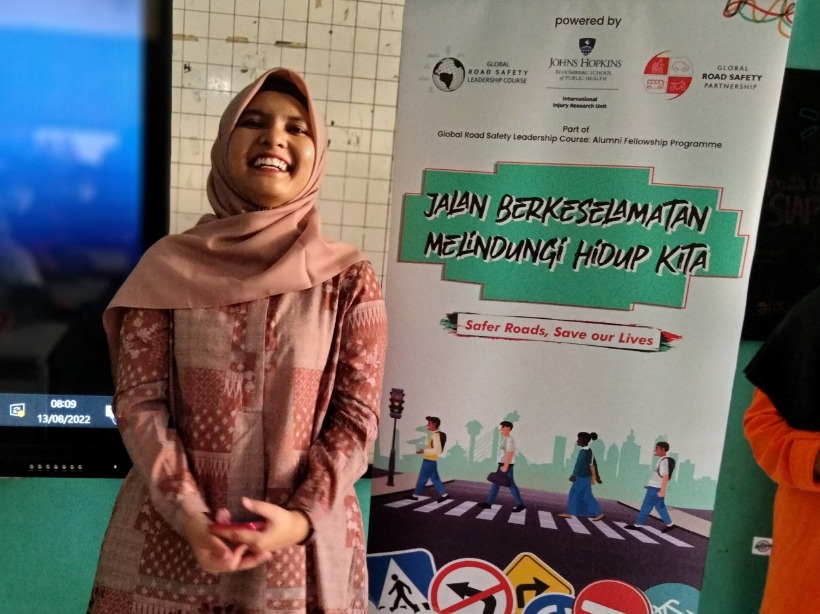
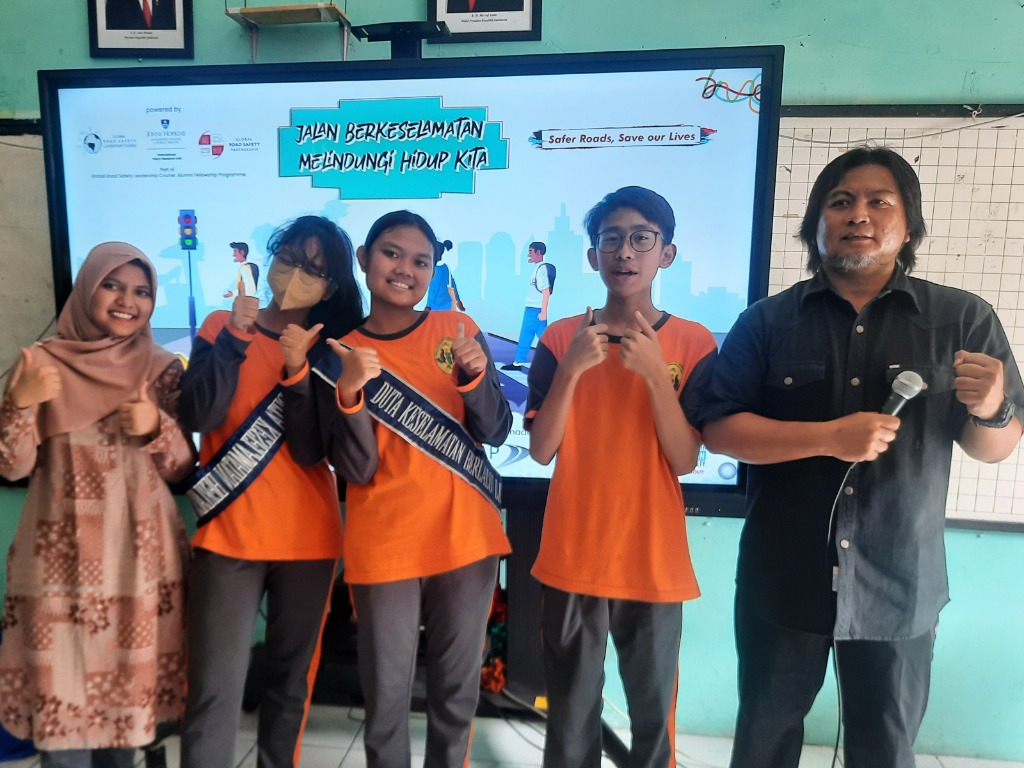
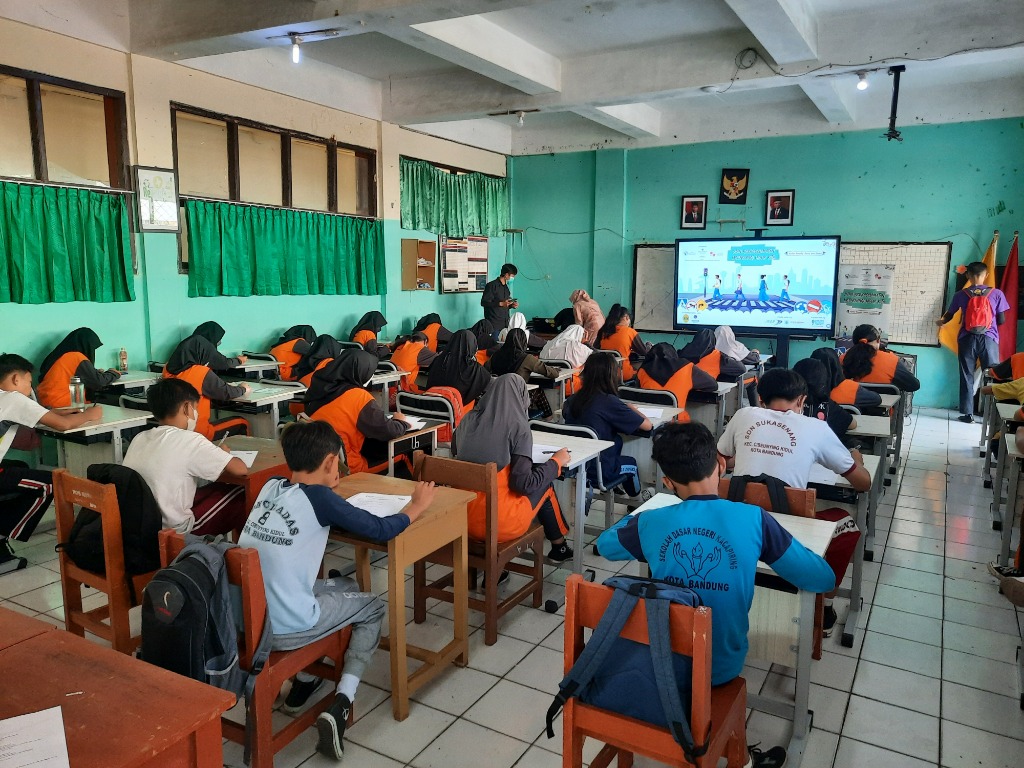
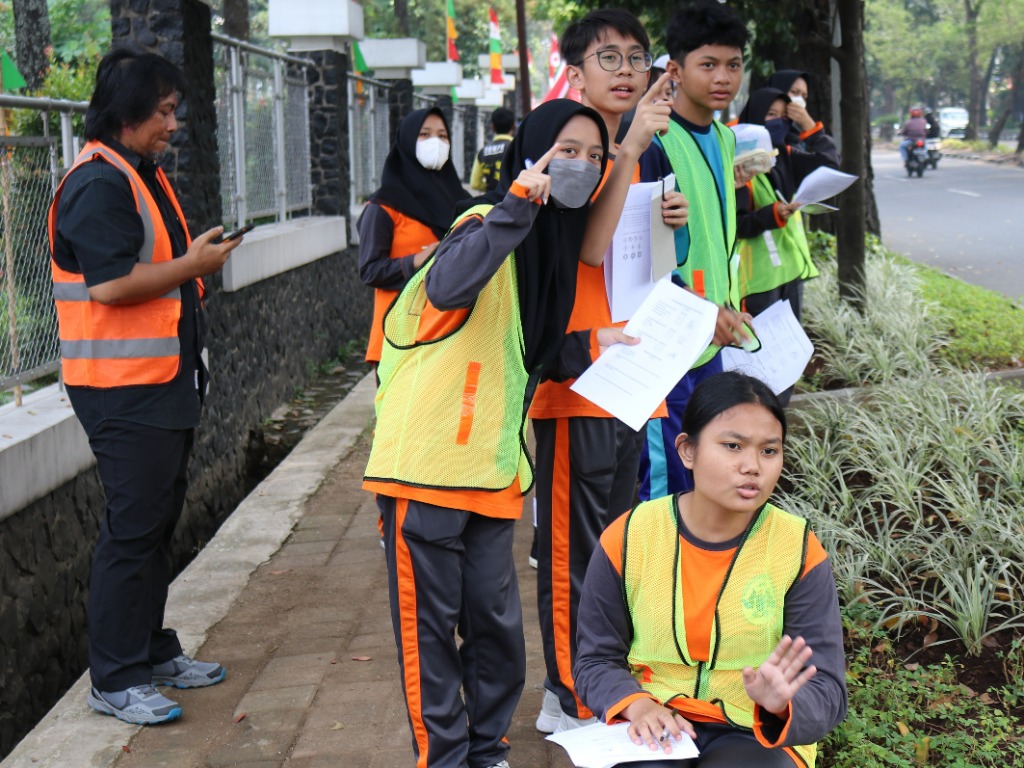
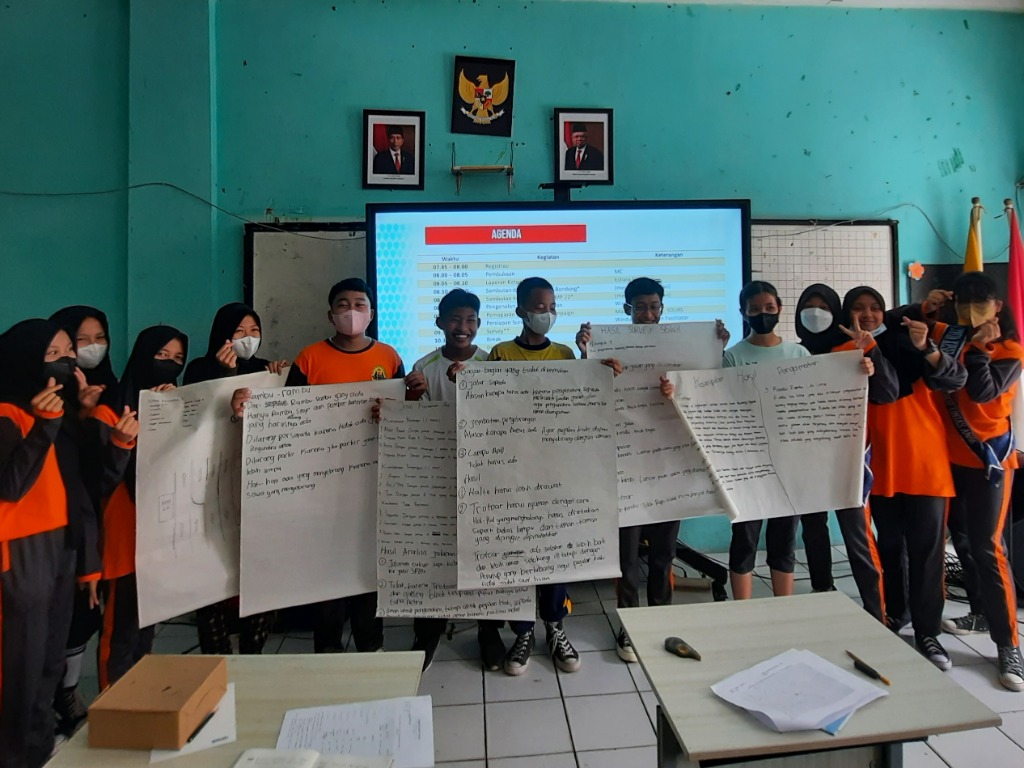
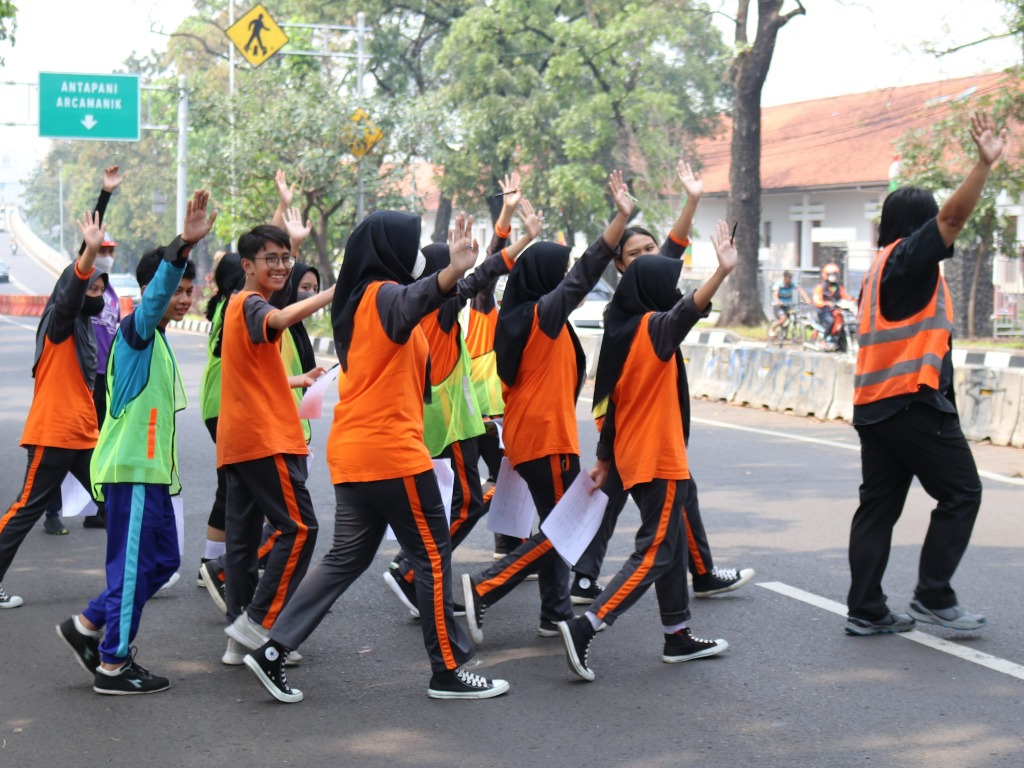
“We need to involve youth as part of the road design process,” Estiara Ellizar said.
“This project is part of my Fellowship Programme of the Global Road Safety Leadership Course and through it I aim to connect the youth perception to iRAP SR4S results as part of meaningful youth participation.
“The workshop gave the students an experience as users, surveyors and professional consultants to provide possible road safety solutions to government.
“I was impressed to see how brave and confident they were while presenting the problems followed by the solutions. They recognised their role to not just identify problems but also to try to find the solutions. This means they now understand their role as a youth where their voices should be heard to be considered.
“Feedback from the workshop was very positive,” Estiara said.
Within the project, Estiara is looking to duplicate the success of a Local Actions Project led by Titis Efrindu, one of her teammates with Transportologi of Safety Street Participatory Design.
The workshop was made possible by a grant from Global Road Safety Leadership Course (GRSLC) Alumni Fellowship Programme. It was co-organized by the Johns Hopkins International Injury Research Unit (JH-IIRU) and the Global Road Safety Partnership (GRSP) and fully supported by the Global Youth Coalition for Road Safety.
Estiara become a Fellow of the GRSLC Alumni Fellowship Programme for 2022-2030 during the Global Road Safety Leadership Course held in New York in June.
The Programme aims to increase the knowledge and skills of road safety professionals in low- and middle-income countries to bridge the gap between knowledge and practice. It is being delivered remotely and is designed to encompass capacity building, project implementation, and the delivery of the Initiative Partners Course. The integration of these three elements will provide Fellows with an immersive experience that will help build their road safety profile and expertise.
Estiara is being mentored by Greg Smith, Global Programme Director of the International Road Assessment Programme (iRAP).
Images credit: Estiara Ellizar

